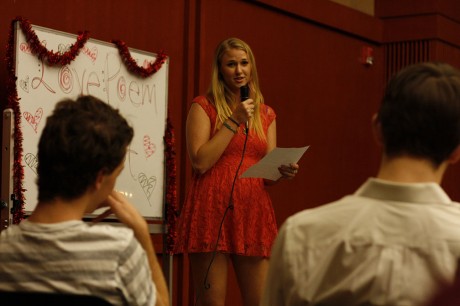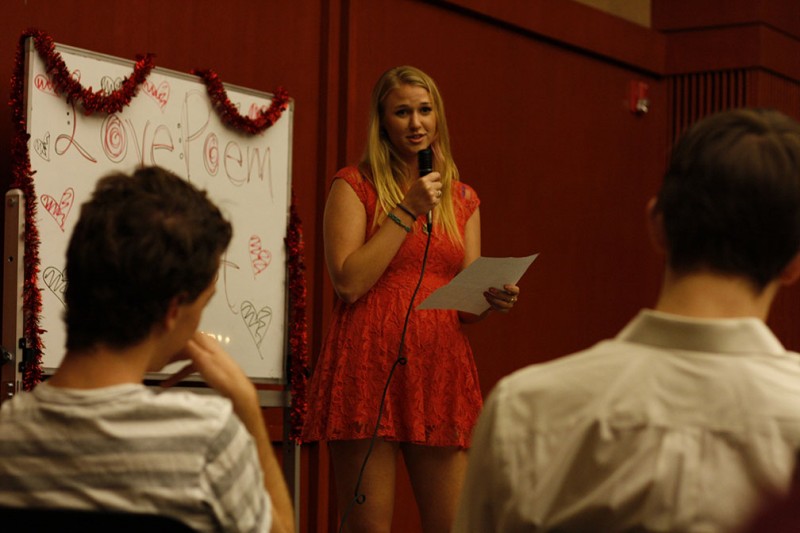
Are you constantly writing short stories and poetry? Do you have a passion for visual art? Do you want to share your talents with others at your school? Would you be interested in seeing the talent of your peers? If so, you should pick up the Trinity Review Literary Magazine this spring, or make a submission next fall.
“[The Review] includes everything: poetry, artwork, prose. Sometimes we get long stories, we get short stories too. Anything student-created or -written,” said graduate student Elisa Reyna, co-editor of the Trinity Review.
Students can make submissions at the end of the fall semester each year, and the Review staff is responsible for evaluating all submissions and voting “yes” or “no” for each. The top 25 percent of the submissions are automatically accepted for publishing, and the staff has a meeting in the spring to make final decisions on the next 50 percent of submissions.
“[The Review] gets between 100 and 200 submissions each year and around 80-90 should be published in the magazine this year,” said senior Mallory Conder, co-editor of the Trinity Review.
In cooperation with the Trinity Art Collective, the Review also looks to publish visual art projects outside of those submitted.
“This year, there’s been a lot more photography submissions than in the past,” Conder said.
The Review is funded by the Association of Student Representatives as well as the English department, but staff members have recently started fundraising to cover the costs of printing.
“Last year, the fundraising committee put on a bake sale and sold t-shirts” Conder said. “It was also the first time we asked ASR for more money for printing, which was great because we printed 100 more copies than we would have been able to.”
What makes the Trinity Review different from other literary magazines (like Trinity’s 1966) is the level of student involvement.
“The Trinity Review is completely student-edited, -designed, -produced, and -distributed. We’re really proud of how self-sufficient it is,” said Kelly Carlisle, assistant professor of English and faculty advisor to the Trinity Review.
The Review also sponsors several events throughout the year as other opportunities for students to showcase their talents. In addition to hosting open mic nights for advanced English classes, the Review hosts the Love Poem Contest in February and the Scary Story Contest in October each year.
At the Love Poem Contest this year, Carlisle and Andrew Porter, associate professor of English, judged the competition portion, giving awards like “best imagery” and “best sex poem that wasn’t actually about sex.”
Senior Rebecca Reinhardt was the runner-up for best poem, while senior Drew de los Santos won first place and took home the prize, the $5 entry fee from each competitor.
This spring, pick up your own copy of the Trinity Review in the English Department, Communication Department, Coates Library or Coates University Center.
“(The Trinity Review) is a good way to get to know a side of someone that you might not know otherwise,” Conder said.
The Trinity Review is one of many examples of student collaboration that add to the Trinity community.
“Reading the magazine, submitting work, or working for the journal are rewarding creative endeavors,” Carlisle said. “By doing one or all, you join a community of artistic, talented, and fun students who are making something worthwhile.”








Alexander Paul • Feb 16, 2013 at 3:56 am
Does the Trinity Review only collect poems from local students? What about students from other schools? Even out of state ones? What about alumni?